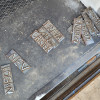This useful tool organizes the information you'll need to process a grievance
If you do a thorough job of researching your grievance, you'll end up with quite a bit of information. The Steward Fact Sheet that follows is a useful tool that can help you organize that information.
This simple form can help you a great deal when you get ready to write up your grievance. In fact, if you conscientiously investigate the complaint and fill in all of this form, you should be able to write your grievance just by transferring the information from the form.
Filling in all the sections is also a good way to double-check to make sure you're collecting all of the information you'll need to investigate and handle the grievance properly. Begin filling in this form as soon as you determine that you have a complaint that could lead to a grievance.
Each grievance is unique, and contracts differ greatly. Some areas on this form might not be important to your case and you can ignore them. But take a good, hard look at the facts before you do so. You don't want to leave out anything that might help you refute the company's argument.
Areas that you must not overlook are the sections requiring the reason this action is considered a grievance, the corrective action requested, and what the employer contends.
The basis for your grievance is crucial in determining how you will argue your case. You must determine whether your complaint involves a violation of 1) the contract, 2) state or federal laws, 3) company rules and regulations, 4) well-established practices, or 5) workers' rights.
Writing this down will help you decide how to argue the case and will also help weed out complaints that seem serious but are not grievable. If none of these violations occurred, you do not have a grievance.
The corrective action you are seeking is also extremely important. This form reminds you to decide what you believe the grievant should get before you actually file the grievance.
For most grievances, the remedy is to "make whole" the grievant, i.e., to return the grievant to the same position he or she would have had if the incident had not occurred. If you don't know what to ask for, simply say you want the grievant made whole.
If you don't specify the remedy you want, you can win the grievance but the grievant will still not get the back pay, overtime, or whatever.
Perhaps the single most important section is the section for the employer's position. Getting the employer's position on paper helps you plan the way you will argue your case.
For example, if the employer is making an affirmative claim, such as that Joe Smith violated a rule, then you can assume the negative argument and the burden of proof will be on them. They need to prove that he did, indeed, violate the rule and that the rule was clear and known to everyone. If they fail to prove any of these points, you may be able to win your grievance.
It is always easier to win the negative argument. In this case, you would only need to cast doubt on whether he actually broke the rule.
However, if you pass up this easy argument and instead claim that the company is "out to get" Joe, you have shifted the burden of proof back onto yourself. Even if you are right and they really are trying to get Joe, you'll probably lose the grievance unless you have mountains of evidence from uninterested third parties.
Take the easier way. Make the company prove what they have claimed. Don't shift the burden of proof back to yourself by making a new claim of company wrongdoing.
Steward Fact Sheet, Side One
Developed by Rob Lauzon, BM-ST of Cement District Lodge D11, and stewards in the CLGAW Division, this simple form can help you a great deal when you get ready to write up your grievance. In fact, if you conscientiously investigate the complaint and fill in all of this form, you should be able to write your grievance just by transferring the information from the form.
Steward Fact Sheet, side one (64k)
Steward Fact Sheet, Side Two
Developed by Rob Lauzon, BM-ST of Cement District Lodge D11, and stewards in the CLGAW Division, this simple form can help you a great deal when you get ready to write up your grievance. In fact, if you conscientiously investigate the complaint and fill in all of this form, you should be able to write your grievance just by transferring the information from the form.





